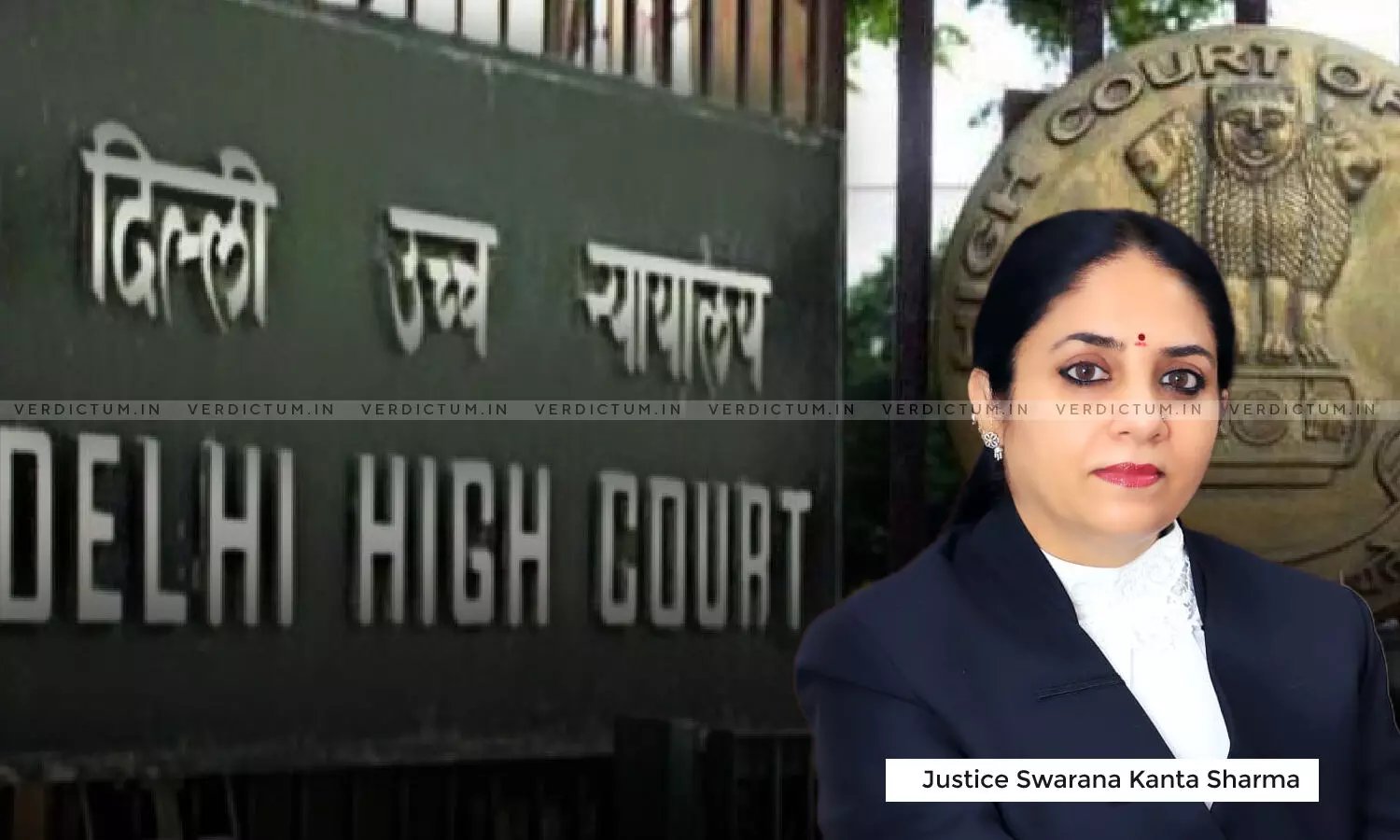
Justice Swarana Kanta Sharma, Delhi High Court
Delhi High Court Directs Presiding Officers To Follow Mandatory Protocol In Case Of Reserved Judgments Prior To Relinquishing Charge
 |
|The Delhi High Court considered a revision petition regarding the offence punishable under Section 138 of the Negotiable Instruments Act, 1881.
The Delhi High Court laid down the protocol to be mandatorily followed by the Presiding Officers in all cases where a Presiding Officer is transferred and has reserved judgments/orders prior to relinquishing charge.
In the given case, there was a procedural lapse on part of the Presiding Officer and the Successor Presiding Officer while dealing a case under Negotiable Instruments Act.
The Bench of Justice Swarana Kanta Sharma observed, “Henceforth, it is hereby directed that in all cases where a Presiding Officer is transferred and has reserved judgments/orders prior to relinquishing charge, the following protocol shall be mandatorily followed:
A. The Presiding Officer being transferred shall prepare a comprehensive list of all cases in which orders or judgments have been reserved by them but not yet pronounced.
B. This list shall be submitted to the concerned District Judge before the date of relinquishing charge.
C. The Presiding Officer shall remain dutybound to pronounce judgments/orders in all such matters on the date already fixed or, at the latest, within 2–3 weeks from the date of their transfer, as noted above, and in accordance with the notes appended to the transfer list.
D. The District Judge of the concerned district shall ensure compliance with the above directions and facilitate the pronouncement of judgments/orders by the transferred Presiding Officer in accordance with the mandate of the transfer list.”
Advocate Chander Pradha represented the Petitioner, Advocates Rajkumar and Kapil Gupta represented the Respondents.
Case Brief
A revision petition was filed by the Petitioner, who has been convicted under Section 138 of the Negotiable Instruments Act, 1881 and had been sentenced to undergo imprisonment till the rising of the Court, and further directed to pay compensation of ₹7,00,000/-.
During the trial, when the matter was fixed for judgment, the Predecessor Judge had been transferred and was succeeded by another Presiding Officer. Thereafter, the Successor Judge insisted on rehearing final arguments, and fixed the matter for final arguments. Thus, this procedural lapse further contributed to the confusion and delay in adjudication.
Court’s Analysis
At the outset, the Court noted that the Petitioner abused the procedural framework to delay the proceedings, thereby frustrating the object of expeditious disposal under Section 138 of the NI Act.
“The record clearly reflects that ample and repeated opportunities were afforded to the petitioner to advance final arguments. Instead of availing these opportunities in a timely manner, the petitioner chose to misuse the leniency extended by the learned Trial Court, which not only accommodated multiple adjournments at the behest of the learned counsel for the petitioner but also went to the extent of re-hearing final arguments, despite the matter having already been reserved for judgment”, the Court said.
On the issue of procedural lapse, the Court emphasised that the Note appended to the transfer list clearly stipulates that judicial officers under transfer are required to notify the cases in which judgments or orders had been reserved prior to relinquishing charge in accordance with the transfer/posting order.
“This directive is binding not only upon the transferring officer but also on the successor court, which is expected to adhere to and facilitate compliance with the same, as the note forms part of the official transfer communication received by them”, the Court observed.
The Delhi High Court held, “There is, therefore, no confusion that the Presiding Officer who has reserved an order or judgment in a case has to pronounce the order or the judgment himself even after he is transferred. The successor Court must not be listed for re-hearing as per the mandate of the note appended to each transfer list.”
Thus, the Court opined that, both the judicial officers committed an error, the Presiding Officer who had reserved the judgment was dutybound to pronounce the judgment as per mandate of the Note appended to the transfer list and the Successor Court was also dutybound to sent it to the District Judge concerned for being placed before the Presiding Officer who had reserved the judgment.
Hence, the Court laid down the mandatory protocol to be followed by the Presiding Officers in cases of transfer wherein the judgments have been reserved.
The Court also directed the Director (Academics), Delhi Judicial Academy to take note of the judgment and ensure that the guidelines and observations contained in it were appropriately included in the refresher courses and training modules for Judicial Officers undergoing training at the Academy.
Accordingly, the petition was dismissed.
Cause Title: B.D. Sharma V. State of NCT of Delhi & Anr. (Neutral Citation:2025:DHC:5607)
Appearance:
Petitioner: Advocates Chander Pradha and Rishi Jaiswal
Respondent: Advocate Rajkumar, APP for the State; Advocates Kapil Gupta, Akshana Nath, Shashank Aggarwal and Pushpendra Jadon, for Respondent no. 2.
Click here to read/download Judgment